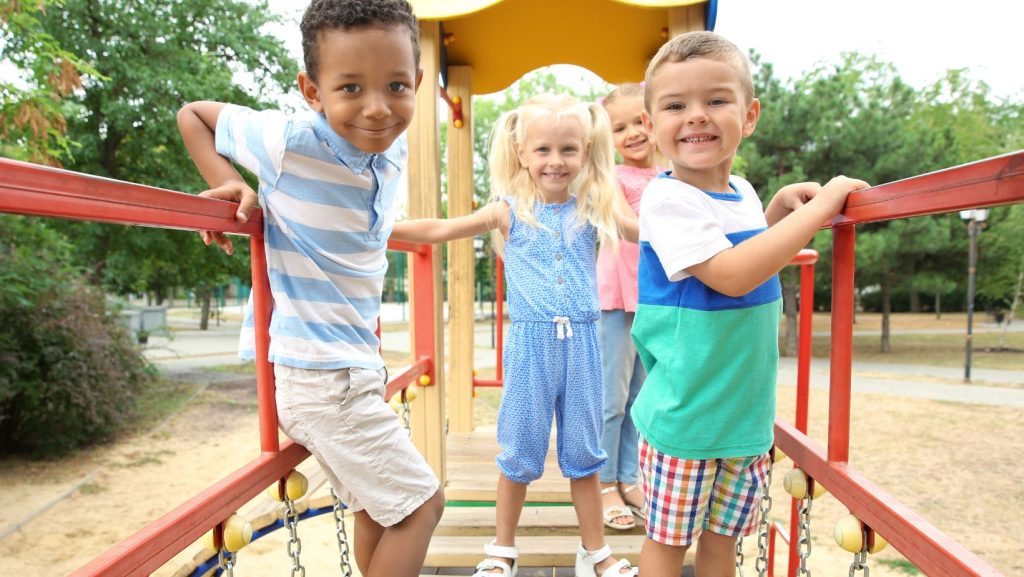
Free play is a spontaneous and imaginative activity that children engage in without specific adult direction. It is characterized by being unstructured, voluntary, and child-directed, making it a vital aspect of a child’s growth. In an age where kids’ schedules are often packed with structured activities, the value of free play can sometimes be overlooked. However, free play is essential for all areas of child development, providing unique benefits that structured activities alone cannot match.
Cognitive Development
Free play is a powerful tool for enhancing cognitive development. When children engage in play, they often solve problems, make decisions, and use their creativity. Activities such as building blocks or role-playing scenarios help develop these essential skills. Research has shown that children who have ample opportunities for free play exhibit improved memory, better attention spans, and enhanced problem-solving abilities.
For example, when children play with building blocks, they learn about spatial relationships and cause-and-effect, which are foundational concepts in math and science. Role-playing games help children develop their imagination and storytelling skills, which are crucial for language development and creative thinking.
Social Development
Playing freely with peers encourages children to develop important social skills. Through play, children learn how to cooperate, negotiate, and resolve conflicts. These interactions help them understand social norms and build friendships. Facilitating group play can further enhance these social skills.
For instance, games that require teamwork, like building a fort or playing a sport, teach children the importance of working together towards a common goal. By taking turns, sharing, and negotiating rules, children learn how to communicate effectively and empathize with others.
Emotional Development
Free play also plays a critical role in emotional development. It allows children to express their emotions freely and develop empathy. Through dramatic play, children can explore different feelings and scenarios, which helps them build resilience and coping mechanisms.
Consider a child playing “house” and taking on the role of a parent, nurse, or teacher. This type of play helps them understand and manage their emotions, as they mimic real-life situations and learn to deal with various outcomes. It also provides a safe space for children to process their experiences and feelings.
Physical Development
Active play is essential for improving motor skills and overall physical health. Outdoor play, in particular, is crucial for developing coordination and strength. Activities like running, jumping, and climbing help children build muscle and improve cardiovascular health.
Outdoor playgrounds offer an ideal setting for this type of play. Climbing structures, swings, and slides not only provide fun but also challenge children physically, helping them develop balance, strength, and agility. Participating in sports and playground games also promotes healthy habits that can last a lifetime.
Outdoor Playgrounds and Free Play
Outdoor playgrounds are vital environments for free play. They provide diverse opportunities for exploration and interaction, promoting physical, social, and cognitive development. The various equipment found in playgrounds—such as climbing frames, swings, and imaginative play structures—encourages children to engage in activities that develop essential skills.
To make the most of playground visits, consider the following tips:
- Ensure Safety: Always check the playground equipment for safety and supervise children accordingly.
- Encourage Cooperative Play: Motivate children to play together, fostering teamwork and social interactions.
- Allow Child-Led Playtime: Give children the freedom to choose their activities and lead their play, which enhances their creativity and independence.
Summing Up the Joy of Free Play
Free play offers numerous benefits across various aspects of child development. It fosters cognitive growth, enhances social skills, supports emotional well-being, and promotes physical health. Allowing children the freedom to explore and learn through play is crucial for their overall development.
Parents and educators can play a significant role in encouraging free play by providing opportunities and environments where children can engage in spontaneous, imaginative activities. Whether at home, school, or the local outdoor playground, the power of free play should never be underestimated.
If you’re interested in creating a custom playground that supports free play, contact SPI Plastics today. Your investment in a quality playground will provide endless opportunities for children to learn, grow, and thrive through play.